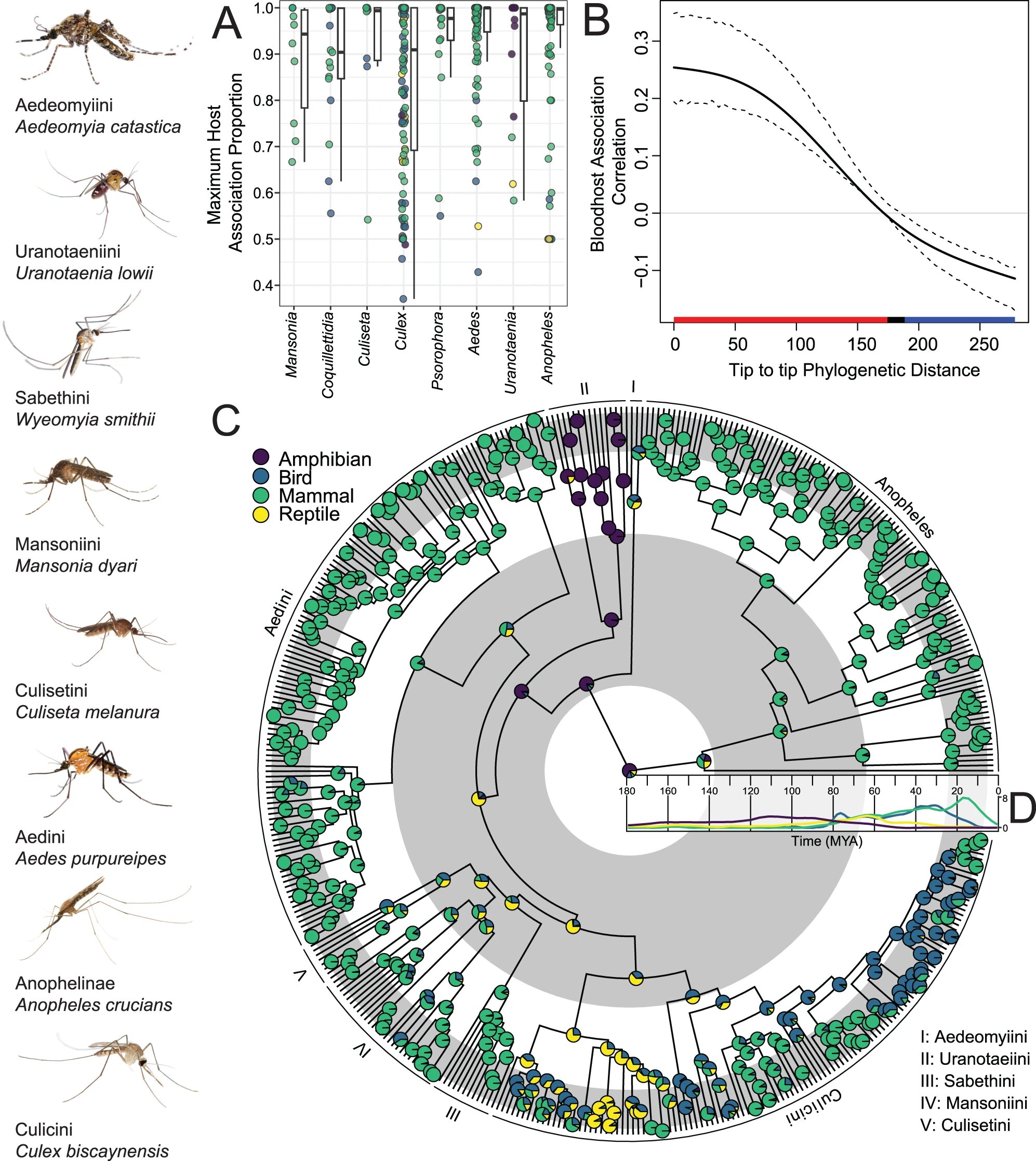While the researchers pored over the academic literature to capture as much published information about mosquitoes as possible, new genomic sequencing techniques also allowed them to take decades-old mosquitoes — some held in place by pins inside insect collections — and capture a great deal of information on their genetic similarities from just fragments of their genetic blueprints, or genomes.
“A lot of research goes into the important mosquitoes and there’s not much known about the incredible mosquito diversity across the globe,” Wiegmann said. “We now have the tools to sample genetic information more rapidly and very thoroughly. And so the time was right to take a big stab at putting the disease vectors and the well-known mosquitoes into the context they evolved in.”
Piecing the genetic and published information together gave the researchers a few notable findings and these can be evaluated against current patterns and distributions.
Mosquitoes are an ancient group — around 217 million years old — that probably originated in South America before it was South America, on one big land mass called Gondwana that hadn’t yet split apart.
 Macroevolutionary analyses of host associations for blood-feeding in mosquitoes based on 293,308 bloodmeal records from 422 different mosquito species. A The maximum host association score among several genera indicating that many genera have a high degree of class-level host association. NC State
Macroevolutionary analyses of host associations for blood-feeding in mosquitoes based on 293,308 bloodmeal records from 422 different mosquito species. A The maximum host association score among several genera indicating that many genera have a high degree of class-level host association. NC State
“Major events like continental drift certainly influenced the diversification of mosquitoes,” Wiegmann said.
“The genomic data confirms that blood feeding evolved very early, before some vertebrate groups, like mammals and birds, were flourishing on Earth,” Wiegmann said. “Mosquitoes evolved right along with them with a new feeding strategy of developing hypodermic needles for mouths and feeding on blood in order for females to have plenty of protein to develop mature eggs.”
And while no mosquito gut contents exist from hundreds of millions of years ago, Wiegmann says that dinosaurs likely provided blood meals for mosquitoes.
“Before mammals became the main hosts on Earth, there had to be something else that mosquitoes fed on. Our research suggests that mosquitoes started out feeding on amphibians and then moved onto other groups — reptiles and birds — as those groups flourished during the Jurassic Era between about 200 million and 145 million years ago.”
Wiegmann said work on the mosquito family tree will continue.
“The family tree ends up being a road map for the kinds of adaptations that led to why some mosquitoes are such important vectors of disease and others are not,” Wiegmann said. “If we figure out which are the bad mosquitoes and put them in the context that led to the success of being vectors of human disease, then we can understand more about how similar pathways may be taken, or how we can predict why some mosquitoes are carriers of viruses and other are not.”
